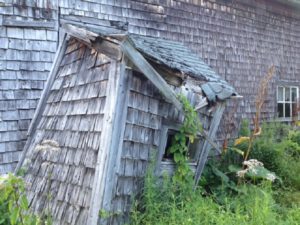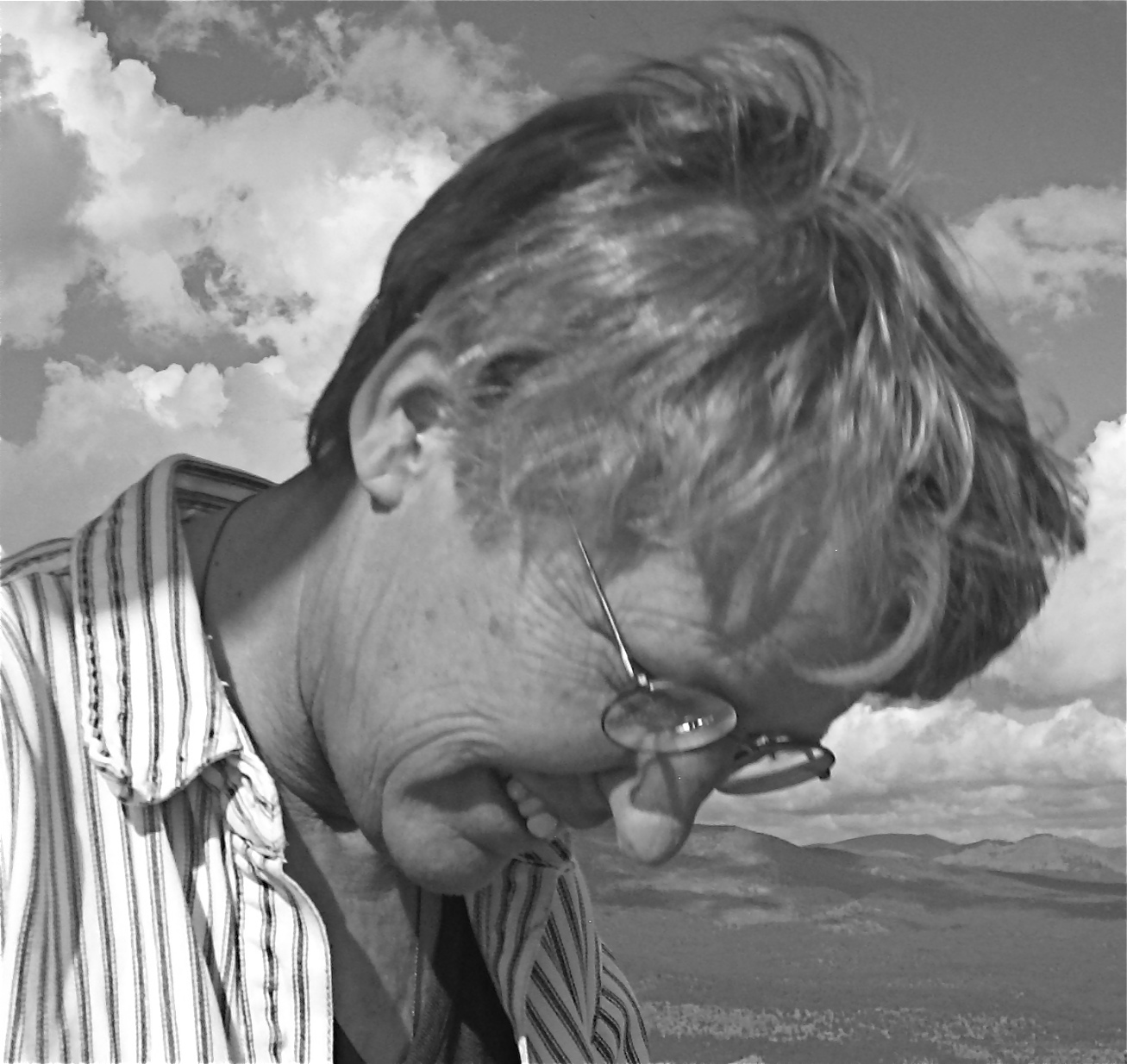 When I told an old friend that the sale of my Maine house was closing 100 years and two days after the July moment when my grandfather signed a deed in 1917, he said, “How Finns flip houses.” I laughed and felt a fluttering of scenes from family history parade across my inner eye, like a small flip book making a jerky movie of the Finns landing in America, the Finns buying a farm in Maine, and then the Finns feeding four children through the Great Depression. The youngest in that house, my mother, grows up to marry a soldier and after the war moves to Arizona with him, they haul a house trailer with their own kids in it to return to grandmother’s house in Maine often over the decades. And later, when she is widowed, she spends her summers away from Phoenix heat in the house she was born in, and I, after her death, spend eight fall seasons sorting through the attic and the barn and drawers of old furniture, putting my hands on every piece of paper and every object from 100 years of occupation.
When I told an old friend that the sale of my Maine house was closing 100 years and two days after the July moment when my grandfather signed a deed in 1917, he said, “How Finns flip houses.” I laughed and felt a fluttering of scenes from family history parade across my inner eye, like a small flip book making a jerky movie of the Finns landing in America, the Finns buying a farm in Maine, and then the Finns feeding four children through the Great Depression. The youngest in that house, my mother, grows up to marry a soldier and after the war moves to Arizona with him, they haul a house trailer with their own kids in it to return to grandmother’s house in Maine often over the decades. And later, when she is widowed, she spends her summers away from Phoenix heat in the house she was born in, and I, after her death, spend eight fall seasons sorting through the attic and the barn and drawers of old furniture, putting my hands on every piece of paper and every object from 100 years of occupation.
I particularly like the wooden skis made by my grandfather that grandmother strapped on to her feet to slide to the mailbox when snow was deep. “To get her Helsinki newspaper,” says a man down the road who remembers her. In a drawer of her treadle Singer sewing machine I find the receipts carefully kept for monthly payments of $5, a 20 percent discount on the $45 for being timely. Every curtain she ever made was still in the attic and I pick a dozen brightly patterned rectangles to hang between trees in the yard. “Grannie Prayer Flags,” I explain to friends who visit. In a vintage trunk is a bundle of postcards from her sisters that stayed in Finland; the sweet images of fields with haystacks and wooden houses tucked into lovely groves of trees delight me. The sisters sent picture books, too. I look at black and white photos of Finland in the 1930s and ’40s and wonder what my grandmother thought as she looked at the Finland she left behind.
It is a rich piece of mid-coast Maine, this road to Cushing where painter Andrew Wyeth savored local faces, barns, field edge and upturned dory. His images of peeling paint and gray bucket, geranium in a window sill and tall grass against cedar shake siding feel like home to me. And meanwhile my grandmother’s neighbor, Bernard Langlais, shaped old wood into outdoor sculptures of elephant and camel, Trojan horse and Nixon in a swamp giving victory signs, and sea gulls in flight emerging from wooden backdrops. Really, if you ever go to Maine, which many people mean to do, you should hunker down for a couple of days in Rockland and explore along the tidal Saint George River. Visit the house in the famous Wyeth painting Christina’s World and go by the soon-to-open Bernard Langlais Sculpture Park. Feast on chowder at the Rockland Cafe, have a lobster at the Dip Net in Port Clyde, or sit on the public landing in Thomaston to watch the clam diggers jockey their boats into the water to catch the outgoing tide. I’m grateful my mother moved from Maine to plant her life in the Arizona I so love; and I also feel enriched by years of visits to her Maine beginnings.
It is modern to become expert at moving on, but it’s also a lot of work. Whether you are leaving government quarters at the end of a season, or moving out of an apartment hoping to get your deposit back or selling your starter home to move up, changing rooms takes stamina. Add 100 years of accumulation to the picture and you can see why it took me years to sell the house. But, recently, it was finally the day to say goodbye. I have a ritual for saying goodbye to places, whether it is an overnight camp along a trail or a fire lookout I’ve worked for years: I spiral around it in expanding circles, right shoulder in, to make a prayer of thanks with my feet and my attention. I started by the Tappan Deluxe stove where I’d put the toaster with its cow cover to remember to add it to the last box to go to the Salvation Army.
I spiral out the front door that locked me out more than once with its finicky latch, out and around across the rise where the sauna use to be before it got torn down to melt into the woods, past the two-hole outhouse peeling away from the barn, and then pass under the spreading branches of the giant white pine tree. I walk by the puzzle of the second front door that we never ever used—not sure why. I notice the purple flowers growing in front of it look framed by the white wood panels. I take a deep breath by the screen door with the granite step where my grandmother would stand, long arms composed just so, as her daughter’s family pulled out of the driveway to go back to Arizona so many Augusts of my childhood. In the next lap I walk further out and think of the apple tree I started to trim when I found it hidden in an accumulation of fast-growing brush. And that balsam tree where I hoped to cut new branch tips to make a wreath some winter day. And the garage where I tacked up dozens of drawings I made of scenes that pleased my eye over the years: curving roads that led to cemeteries and bays, trails through tall grass to water’s edge, distant islands seeming to float on the horizon, and books by candlelight whispering invitation.
I walk with the prayer of letting go which is also the prayer of possibility. Out and around I go a third time with my looking. For years I fretted about the old barn I couldn’t afford to repair. Now it looks peaceful when I stop worrying about it. A delicate creeping vine climbs the outhouse where twin girls giggled on flashlight trips to the two-holer. My breathing is deep with pause to honor the ghosts of family and the sweet investment of my time here: the handwriting I studied in papers that overflowed out of attic trunks, the letters I wrote at the kitchen table musing on family stories and how history happened along a rural Maine road, the faces I savored over meals of haddock and clams and lobsters, the gentle mornings of waking to fog that seemed to purr and lick the windows like a huge affectionate cat.
Three times I walk all the way around the family farmhouse in Maine to say thanks and goodbye. To say yes to the richness of our relationship and yes to letting it go to its future and mine.

